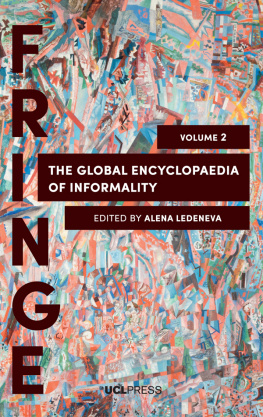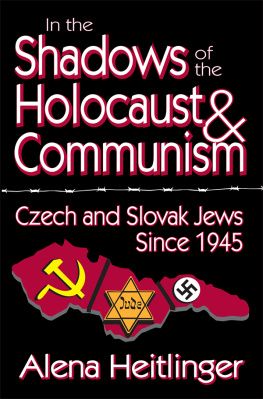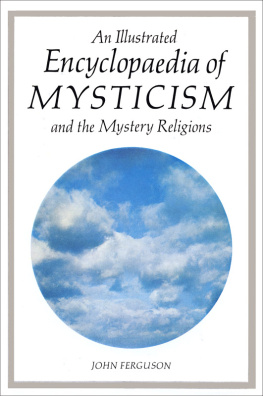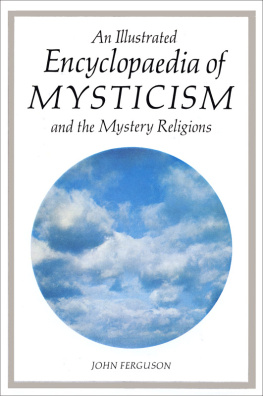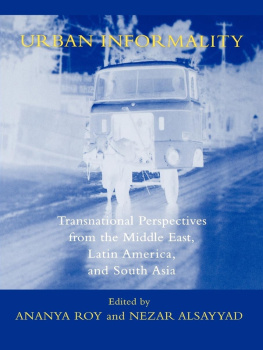The Global Encyclopaedia of Informality
FRINGE
Series Editors
Alena Ledeneva and Peter Zusi, School of Slavonic and East European Studies, UCL
The FRINGE series explores the roles that complexity, ambivalence and immeasurability play in social and cultural phenomena. A cross-disciplinary initiative bringing together researchers from the humanities, social sciences and area studies, the series examines how seemingly opposed notions such as centrality and marginality, clarity and ambiguity, can shift and converge when embedded in everyday practices.
Alena Ledeneva is Professor of Politics and Society at the School of Slavonic and East European Studies of UCL.
Pert Zusi is Lecturer at the School of Slavonic and East European Studies of UCL.
The Global Informality Project unveils new ways of understanding how the state functions and ways in which civil servants and citizens adapt themselves to different local contexts by highlighting the diversity of the relationships between state and society. The project is of great interest to policymakers who want to imagine solutions that are beneficial for all, but sufficiently pragmatic to ensure a seamless implementation, particularly in the field of cross-border trade in developing countries.
Kunio Mikuriya, Secretary General of the World Customs Organisation, Brussels
An extremely interesting and stimulating collection of papers. Ledenevas challenging ideas, first applied in the context of Russias economy of shortage, came to full blossom and are here contextualized by practices from other countries and contemporary systems. Many original and relevant practices were recognized empirically in socialist countries, but this book shows their generality.
Jnos Kornai, Allie S. Freed Professor of Economics Emeritus at Harvard and Professor Emeritus at Corvinus University of Budapest
Alena Ledenevas Global Encyclopedia of Informality is a unique contribution, providing a global atlas of informal practices through the contributions of over 200 scholars across the world. It is far more rewarding for the reader to discover how commonalities of informal behavior become apparent through this rich texture like a complex and hidden pattern behind local colors than to presume top down universal benchmarks of good versus bad behavior. This book is a plea against reductionist approaches of mathematics in social science in general, and corruption studies in particular and makes a great read, as well as an indispensable guide to understand the cultural richness of the world.
Alina Mungiu-Pippidi, Professor of Democracy Studies, Hertie School of Governance, Berlin
Transformative scholarship in method, object, and consequence. Ledeneva and her networked expertise not only enable us to view the informal comparatively, but challenge conventionally legible accounts of membership, markets, domination and resistance with these rich accounts from five continents. This project offers nothing less than a social scientific revolution if the broader scholarly community has the imagination to follow through. And by globalizing these informal knowledges typically hidden from view, the volumes contributors will extend the imaginations of those business consultants, movement mobilizers, and peace makers who can appreciate the value of translation from other world regions in their own work.
Michael D. Kennedy, Professor of Sociology and International and Public Affairs, Brown University and author of Globalizing Knowledge
Dont mistake these weighty volumes for anything directory-like or anonymous. This wonderful collection of short essays, penned by many of the single best experts in their fields, puts the reader squarely in the kinds of conversations culled only after years of friendship, trust, and with the keen eye of the practiced observer. Perhaps most importantly, the remarkably wide range of offerings lets us de-parochialise corruption, and detach it from the usual hyper-local and cultural explanations. The reader, in the end, is the one invited to consider the many and striking commonalities.
Bruce Grant, Professor at New York University and Chair of the US National Council for East European and Eurasian Research
The Global Encyclopaedia of Informality
Understanding Social and Cultural Complexity
Volume 2
Edited by Alena Ledeneva
with
Anna Bailey, Sheelagh Barron, Costanza Curro and Elizabeth Teague
First published in 2018 by
UCL Press
University College London
Gower Street
London WC1E 6BT
Available to download free: www.ucl.ac.uk/ucl-press
Text Contributors, 2018
Images Contributors and copyright holders named in the captions, 2018
The authors have asserted their rights under the Copyright, Designs and Patents Act 1988 to be identified as the authors of this work.
A CIP catalogue record for this book is available from The British Library.
This book is published under a Creative Commons 4.0 International license (CC BY 4.0). This license allows you to share, copy, distribute and transmit the work; to adapt the work and to make commercial use of the work providing attribution is made to the authors (but not in any way that suggests that they endorse you or your use of the work). Attribution should include the following information:
Ledeneva, A. (ed.). 2018. The Global Encyclopaedia of Informality: Understanding Social and Cultural Complexity, Volume 2. London: UCL Press.
DOI: https://doi.org/10.14324/111.9781787351899
Further details about Creative Commons licenses are available at http://creativecommons.org/licenses/
ISBN: 978-1-78735-191-2 (Hbk.)
ISBN: 978-1-78735-190-5 (Pbk.)
ISBN: 978-1-78735-189-9 (PDF)
ISBN: 978-1-78735-192-9 (epub)
ISBN: 978-1-78735-193-6 (mobi)
DOI: https://doi.org/10.14324/111.9781787351899
Preface
Alena Ledeneva
This book invites you on a voyage of discovery, to explore societys open secrets, to comprehend unwritten rules and to uncover informal practices. Broadly defined as ways of getting things done, these informal yet powerful practices tend to escape articulation in official discourse. We have identified unique research into such practices across area and across discipline, which charts the grey zones and blurred boundaries, and distinguished types of ambivalence and contexts of complexity. Our Global Informality Project database is searchable by region, keyword or type of practice. Do explore what works and how, where and why!
The informal practices revealed in this book include emotion-driven exchanges (from gifts or favours to tribute for services), values-based practices of solidarity and belonging enacting multiple identities, interest-driven know-how (from informal welfare to informal employment and entrepreneurship, often not seen or appreciated as expertise), and power-driven forms of co-optation and control. The paradox or not of the invisibility of these informal practices is their ubiquity. Expertly practised by insiders but often hidden from outsiders, informal practices are, as this book shows, deeply rooted all over the world.
Fostering informal ties with godfathers in Montenegro, dear brothers in Finland and little cousins in Switzerland known locally as



